
By Micheal Rios, Tulalip News
Mary Ellen Johnson-Davis went missing on November 25, 2020. She was last seen walking east on Fire Trail, a well-travelled road designated as the north border of the Tulalip Reservation. Presumed a homicide victim by local authorities, including Tulalip Chief of Police Chris Sutter, Mary’s absence looms large in the hearts and minds of her loved ones who are still searching for answers, hoping against hope that she’ll come home.
Three-and-a-half years after her disappearance, Mary’s sisters Nona Blouin and Gerry Davis have worked tirelessly with Missing and Murdered Indigenous Women (MMIW) organizations, Tulalip Tribes leadership, social media groups, and other interested parties who are committed to giving a voice to the voiceless.
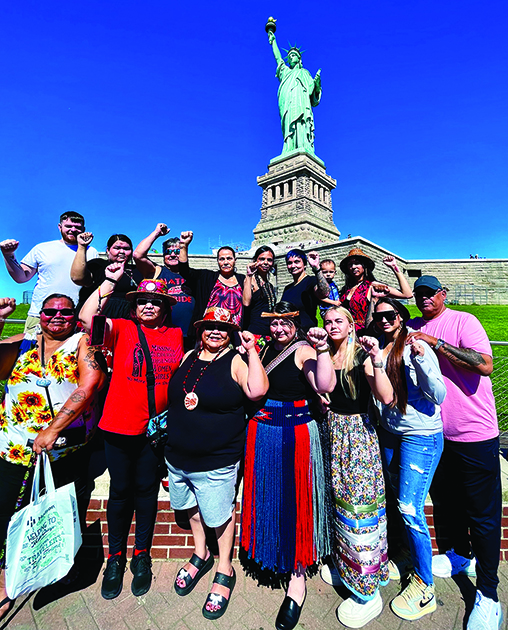
Two of those interested parties were French-American film maker Sabrina Van Tassel and former Tulalip Tribes vice-chairwoman Deborah Parker who share a passion for seeking social equity and political justice for often underserved, overlooked peoples. Their united effort to not let Mary’s story go silent and to place a cinematic-sized spotlight on the hundreds of Native American women who continue to go missing in the United States led to the creation of Missing from Fire Trail Road.
“Ten years ago, I was watching this incredible woman Deborah Parker as she was trying to include Native women in the reenactment of the Violence Against Women Act under the Obama Administration. That was the first time I heard about missing and murdered Indigenous women,” recalled the film’s director. As an investigative journalist and movie maker, Sabrina has directed over 40 documentaries. “Deb and I stayed in touch. As we grew and got older I always had the idea I would do a feature documentary on this great matter.
“When I finally got the financing, I immediately called Deb and asked her to be my executive producer,” Sabrina continued. “We needed to do this together. This project is the really the culmination of two women, one Native, one non-Native having the urge to protect women.”

Carefully crafted in a culturally sensitive way, Missing from Fire Trail Road successfully shed light on the ongoing and continuously unsolved disappearances of Native women across the country. It elevates the story of Mary Ellen Johnson-Davis to open up a broader conversation about the violence and generational trauma suffered by Native communities, as well as the fallible laws and lack of credible investigation surrounding them.
From leaders like current Tulalip chairwoman Teri Gobin to U.S. Secretary of the Interior Deb Haaland to Mary’s sisters and cousins, the 101-minute film threads an evocative but important narrative about these overlooked cases and the urgency for attention and action in these investigations.
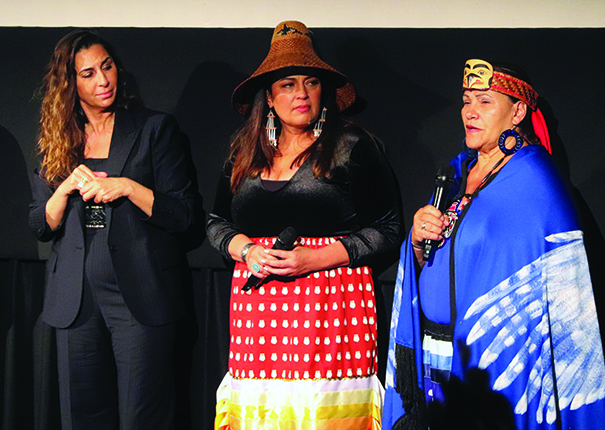
After multiple years of production, Missing from Fire Trail Road had its much-anticipated world premier on June 8 at the Tribeca Festival. Held in New York’s East Village Theater, film production crew and allied organizations united their resources to ensure Mary’s sisters received the full red-carpet experience and were shrouded by the heart-felt support and endearing strength of their Tribe.
“Our hearts and our prayers go out to the many advocates who do this important work each and every day, to the families who have missing loved ones, and to Mary Ellen Johnson’s family…this film is for you,” said executive producer Deborah Parker moments before the film’s silver screen debut. Her tireless work as an Indigenous leader and C.E.O. of the Native American Boarding School Healing Coalition was absolutely critical to the movie’s making. “This film is for the missing and murdered Indigenous women. This film is for all those relatives across the land who want to see justice for our women. We deserve justice. That’s what this film is about, to tell this story of injustice and how we as a nation can come together because we deserve better.”
After the film’s debut, Director Sabina, executive producer Deborah, and Chairwoman Teri Gobin were asked a series of questions from media members and film critics. They did an admirable job of echoing the film’s poignant positioning of ongoing violence against Native women and the MMIW epidemic as a direct result of the Boarding School Era, the Indian Child Welfare Act, and the intergenerational trauma sustained by the forcible removal of Native children from their homes by the U.S. government.


The Tulalip delegation were invited to a special post-film reception where they were traditionally welcomed by the members of the Shinnecock Nation, a federally recognized tribe in New York. Songs of strength and healing were shared for Mary’s sisters and cousins in attendance, as well as prayers offered for the return of Mary. Film director Sabrina was also blanketed for her commitment to spreading awareness of missing and murdered Indigenous women via the cinematic lens. It’s her intention to see the film receive national, if not worldwide exposure.
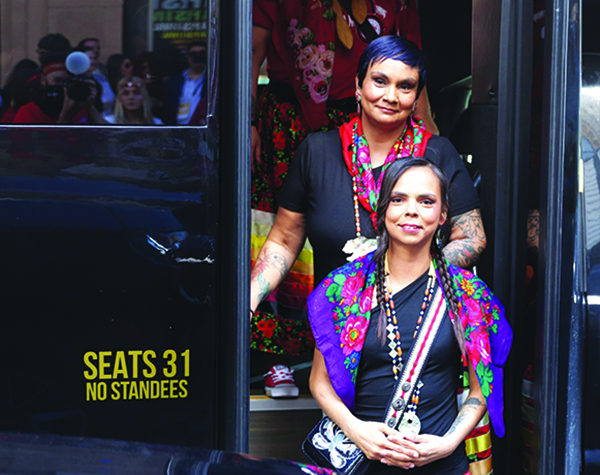
“It made my heart smile to see the theater packed with so many people from all over to hear our sister’s story. All this exposure is going to bring our sister home,” shared Mary’s oldest sister, Nona Blouin. “Having our cousins Lynette and Veronica Jimicum here with us has been a huge support because they’ve been with every step of the way. And having so many other tribal members here too is really awesome because it proves how much of a family our Tribe can be. We’ve grown so close to some who have becomes pillars of strength for us to lean on when we’ve felt weak. We are so grateful for that.”
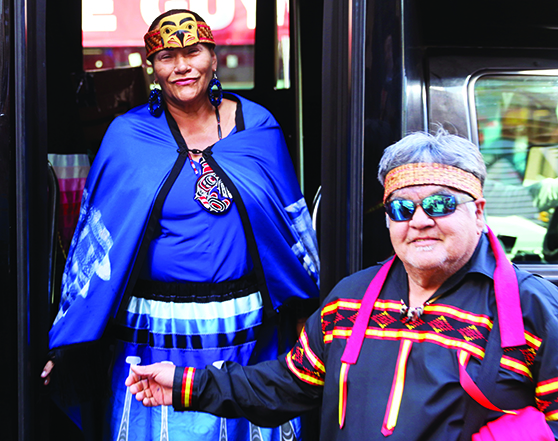
“This entire process has been an emotional rollercoaster because the feelings always rush back anytime we talk about Mary, but it’s just amazing that film is finally out,” added Mary’s youngest sister, Gerry Davis. “Because we grew up in foster homes we’ve always felt estranged from Tulalip. It was Mary who brought us back home. It was Mary who brought us all together. Through these tragic circumstances, from us being taken away so young and then losing our sister, we’ve gained a tribe.”
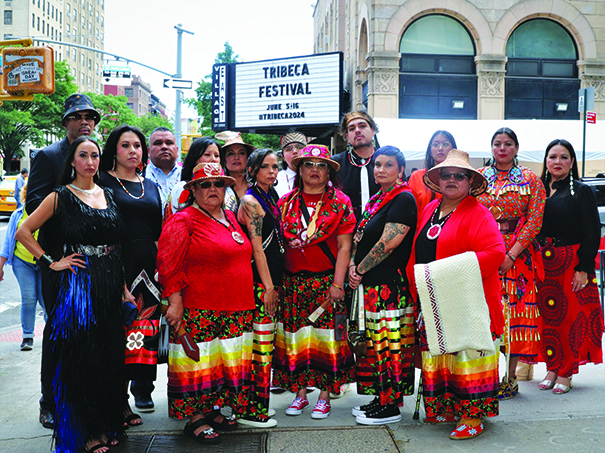
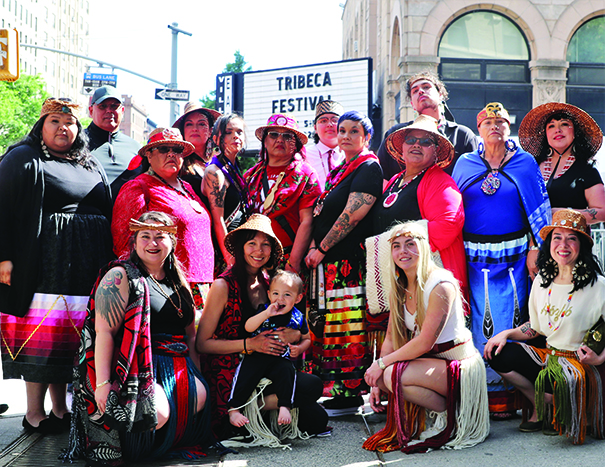
The Tribeca Festival brings diverse audiences together while championing unheard voices through exclusive premieres and thought-provoking conversations. Mary was given voice through cinematic storytelling that was heard by viewers from around the world. They and all future viewers will know her case is still an active investigation. Tulalip Tribal Police and the FBI in Seattle are offering a combined reward of up to $60,000 for information leading to the identification, arrest and conviction of the person or people responsible for Mary Ellen Johnson-Davis’ disappearance.
After accompanying Mary’s sisters and returning from New York, Chairwoman Gobin reflected, “This film creates so much awareness to the general public about the challenges we have regarding MMIW and the inter-jurisdictional issues between federal agencies, state agencies, and our own tribal police. The more people watch, then hopefully the more people can understand the systems we’ve been advocating to change for so long. But perhaps even more important than that was our group being there to support the sisters. They felt just how much support they have, not only from their Tribal Council but their aunties, cousins, and other Native advocates who wanted to shower them with all the love and support they could.”
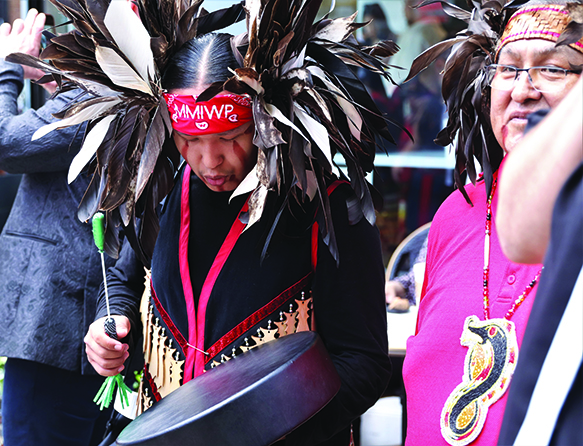
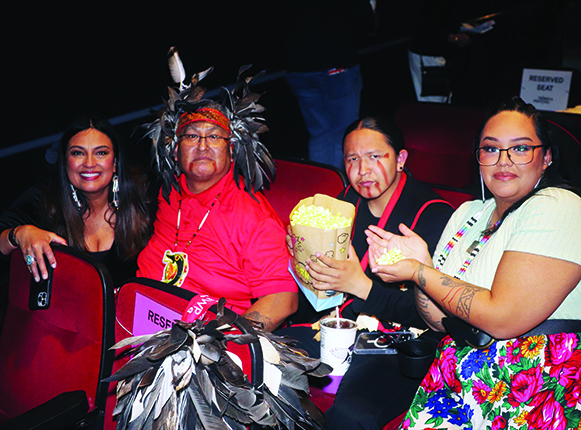
Tulalip leadership are actively planning to host a community viewing of Missing from Fire Trail Road on the reservation. Tulalip News will update community readers with the details after they’ve been finalized.